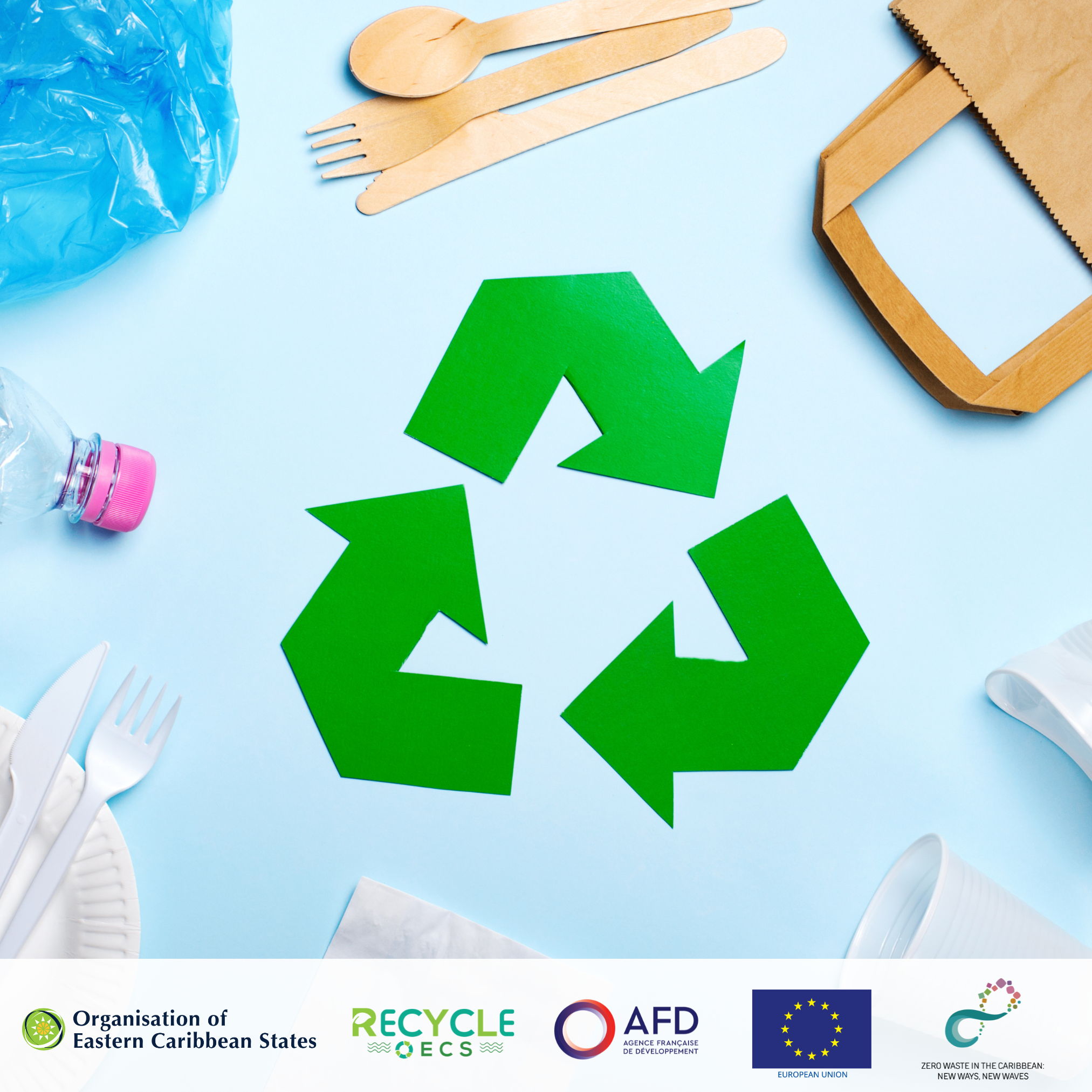OECS NUMBERS REVEAL CRITICAL INSIGHTS INTO CARIBBEAN RECYCLING CHALLENGES
OECS Press Release
Data is transforming how the Organisation of Eastern Caribbean States approaches the sub-region’s most pressing waste management challenges. The groundbreaking Recycle OECS project has uncovered critical insights that highlight an urgent need for systemic changes to protect both environmental and economic interests. To this end, the Project report unveiled a comprehensive strategy that goes beyond traditional recycling models, offering a roadmap for sustainable waste management in small island developing states.
In Dominica, what began as a solution to inefficient collection became a community-wide movement. The Zero Waste Schools Programme mobilized 3,124 students across 62 schools, transforming young people into environmental champions. These students have not only collected over 10 tonnes of plastic waste but have fundamentally changed how their communities think about waste.
Grenada's approach demonstrated the power of strategic partnerships. By engaging the hospitality sector, the project helped process and divert 32.56 tonnes of plastic from landfills - including 22.56 tonnes of new collections and 10 tonnes from existing stockpiles - creating a model of private sector environmental leadership that could be replicated across the region.
“The numbers tell a clear story”explains Chamberlain Emmanuel, Head of the OECS Environmental Sustainability Division. "Our current waste management system is unsustainable, but we have the innovative solutions to change that. By leveraging data, community engagement, and strategic partnerships, we're championing a new approach to waste management."
The project's most significant breakthrough is a centralized regional database for tracking plastic waste shipments. This digital infrastructure supports data-driven planning and enhances compliance with international environmental standards.
Economic challenges remain significant. Current shipping costs of USD 357 per tonne have been a substantial barrier to recycling efforts.
The project has identified key economic solutions, including regional processing hubs that could reduce current shipping costs from USD 357 to USD 95 per tonne. To achieve sustainable financing, innovative approaches are imperative, such as tying waste management fees to utility bills and leveraging environmental levies. The project advocates for deposit-refund legislation across member states to incentivize recycling and create cleaner collection streams.
Looking forward, the project has outlined a plan for participating countries to achieve a 50% recycling rate for PET plastics within the next decade. This will require investments between USD 17-56 million - a commitment that represents more than an environmental strategy, but a pathway to economic resilience and sustainable development.
About the Recycle OECS Project
The Recycle OECS Project, implemented by the Organisation of Eastern Caribbean States (OECS) Commission in partnership with Agence Francaise de Developpment (AFD), is a groundbreaking initiative aimed at reducing plastic pollution and fostering sustainable waste management practices across its member states. Funded by the European Union, the project focuses on developing and scaling a harmonized recycling model tailored to the unique challenges faced by Small Island Developing States (SIDS). By integrating community engagement, private sector collaboration, and legislative frameworks, the Recycle OECS Project provides a blueprint for transitioning the region toward a circular economy model for sustainable waste management.
Jacques Hinkson-Compton
OECS Communications Unit
